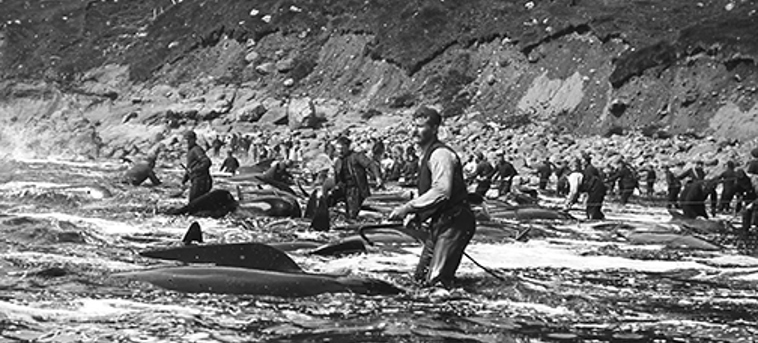
Solidarity and sharing
When a school of pilot whales has been beached and killed, the catch is distributed. The district administrator calculates the shares and distributes tickets, showing how much meat and blubber each person, who is entitled to a share, will receive.
The whale meat and blubber is divided according to how many have participated in the hunt and how many whales are caught. Depending on the size of the catch, the people who live in the area typically also receive a share.
When the district administrator has distributed the tickets, people go to the whale indicated on the ticket. Often, several people share a whale. They will butcher the whale together.
First the blubber is cut off in oblong pieces and laid on the ground, skin side down. Then the meat is cut and laid on top of the blubber to keep it off the ground.
When the meat is cut, those who have shared a whale divide the blubber and meat amongst themselves. One person then turns his back to the othersand is asked who should receive which part. In this way, any potential conflict or unfair distribution is avoided.
The distribution of the meat and blubber is regulated by law, in which it is stipulated that the district administrator, the foremen of the hunt and others with certain official responsibilities each receive a defined share.
The distribution is based on solidarity and has its roots all the way back to the earliest pilot whale hunts in the Faroes. The aim is to distribute shares as equitably as possible and for free.
On two islands, Sandoy and Suðuroy, the catch is only distributed among the local residents and not between those who participate in the hunt. This means that all who live in the area receive an equal share of the catch.
The Faroese whaling legislation:
The Pilot Whaling Act (english translation)
Executive order on the pilot whale drive (english translation)
FOOD
NATURAL
SUSTAINABLE
REGULATED


